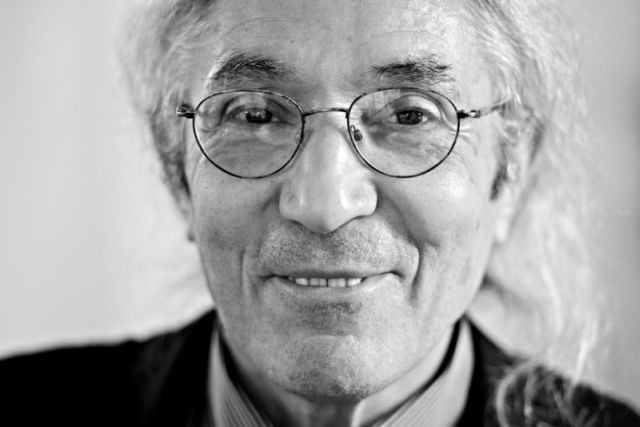
Boualem Sansal
Boualem Sansal was born in the Algerian city of Téniet el Had in 1949. The engineer with a doctorate in industrial economics began to write relatively late in life in response to the assassination of president Mohamed Boudiaf in 1992, and the rise of Islamic Fundamentalism in Algeria. At age 50 he published his first novel, »Le serment des barbares« (1999; tr. The barbarians’ sermon), and was much lauded by critics for his playful and refreshing use of the French language; much in contrast to his native country, where he continues to be reviled and is considered a traitor for publishing lyrical and satirical novels with politically explosive themes. In 2003 he was dismissed from his government post for his critical stance toward the Algerian government. His essay »Poste restante: Alger. Lettre de colère et d’espoir à mes compatriotes« (2006; tr. Poste Restante Algeria: an open letter to my compatriots in anger) was banned in Algeria. Nevertheless, the author decided to stay in Boumerdès near Algiers with his family, to continue publishing his works without using a pseudonym, and to persist in engaging in current political debates, such as – most recently – his disagreement with Bernard-Henri Lévy over the 2011 international military intervention in the Libyan civil war. Sansal’s novels offer a possible way forward for his fellow Algerians on how to forge an identity of one’s own, in a country that has only existed in its present form since gaining independence in 1962. »L’enfant fou de l’arbre creux« (2000; tr. The crazy child from the hollow tree), the child tethered in the yard of a penitentiary, represents the Algerian people who are caught »in this vast prison called Algeria. An infantilized nation, deluded, and shackled by lies. It has reached the point where it neither knows who it is, nor where it comes from, nor what it wants.« The mirth in his novels speaks for Sansal’s strong faith in Algerias’ future, for which »Dis-moi le paradis« (2003; tr. Tell me about Paradise) serves as a first draft. »Harraga« (2005), a tribute to the women of Algeria, provides some hope despite being steeped in tragedy. Sensal subsequently published the novel »Le village de l’allemand« (2008; Eng. »An Unfinished Business«, 2008), which deals with the involvement of former National Socialists deployed as instructors in the Algerian War of Independence, and an essay on the global triumph of Islam, He most recently published, inter alia, the novel »2084. La Fin du monde« (2015; Eng. »2084. The End of The World«).
Among the numerous prizes Sansal has received for his literary work are the Prix du Premier Roman, the Prix Tropiques and Prix Michel Dard. In 2008 Sansal was awarded the Grand Prix de la francophonie and Prix Nessim Habif, and in 2011 he was the recipient of the Peace Prize of the German Book Trade. His latest novel was awarded the 2015 Grand Prix du Roman of the Académie française.
Das verrückte Kind aus dem hohlen Baum
Merlin
Gifkendorf, 2002
[Ü: Riek Walther]
Harraga
Merlin
Gifkendorf, 2007
[Ü: Riek Walther]
Das Dorf des Deutschen
oder Das Tagebuch der Brüder Schiller
Merlin
Gifkendorf, 2009
[Ü: Ulrich Zieger]
Rue Darwin
Merlin
Gifkendorf, 2012
[Ü: Christiane Kayser]
2084
Das Ende der Welt
Merlin
Gifkendorf, 2016
[Ü: Vincent von Wroblewsky]
